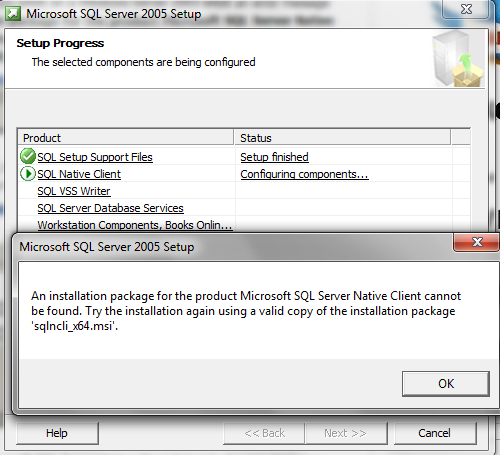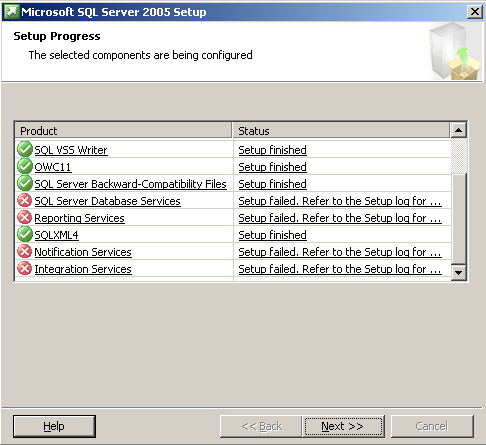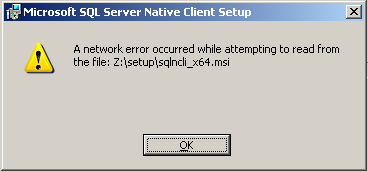Recently while installing SQL Server 2005 64bit on a Windows Server 2008 R2 Enterprise 64bit an error message displays that “An installation package for the product Microsoft SQL Server Native Client cannot be found. Try the installation again using a valid copy of the installation package ‘sqlncli_x64.msi’.” as shown below.
After that, the Microsoft SQL Server 2005 Setup Progress will display some errors with a status “Setup Failed. Refer to the Setup log for details”.
When trying to install the Microsoft SQL Server Native Client Setup by hand it displays a similar error message that the file ‘sqlcli_x64.msi’ cannot be found. It’s unable to locate the sqlcli_x64.msi ( 64 bit version of SQL Server Native client). It’s puzzling, I am trying to install with 64 Bit version of SQL Server 2005 and it’s unable to locate the sqlcli_x64.msi, crazy thing is file is already available in installation folder and it’s showing me that error strange???.
After so much of trial I found solution for this problem is that someone started the installation with a wrong edition (32 vs. 64) edition and left the components there.
Go to Add/Remove Programs and remove the existing SQL 2005 components, and then reinstall.
Voila!!! It works fine.. It’s puzzling why the error comes up, but it is resolved after re-installation.
Discover more from C4: Container, Code, Cloud & Context
Subscribe to get the latest posts sent to your email.



Thanks for the post! Saved me a lot of hassle!
Thank you it Works.
Solution for SQL Server 2012:
In [installation path]\1033_ENU_LP\x64\Setup\x64\SQLNCLIX.msi (where [installatiopn path is the path that is automatically generated on installation) rename the SQLNCLIX.msi file to SQLNCLIX64-2012-EN-300.msi (notice the small letters in extensions). Then reinstall without problems.
Thanks for the tip off… I had the same issue going from x64 SQL 2008R2 Dev Edition to x64 SQL 2014. The message was about not finding sqlncli_x64.msi for SQL 2012.
An app I’d installed had installed 2012 LocalDB and the 2012 Native client. I guess it was a 32bit version. The fix was to uninstall the SQL 2012 Native Client. On running the 2014 upgrade again everything worked correctly.